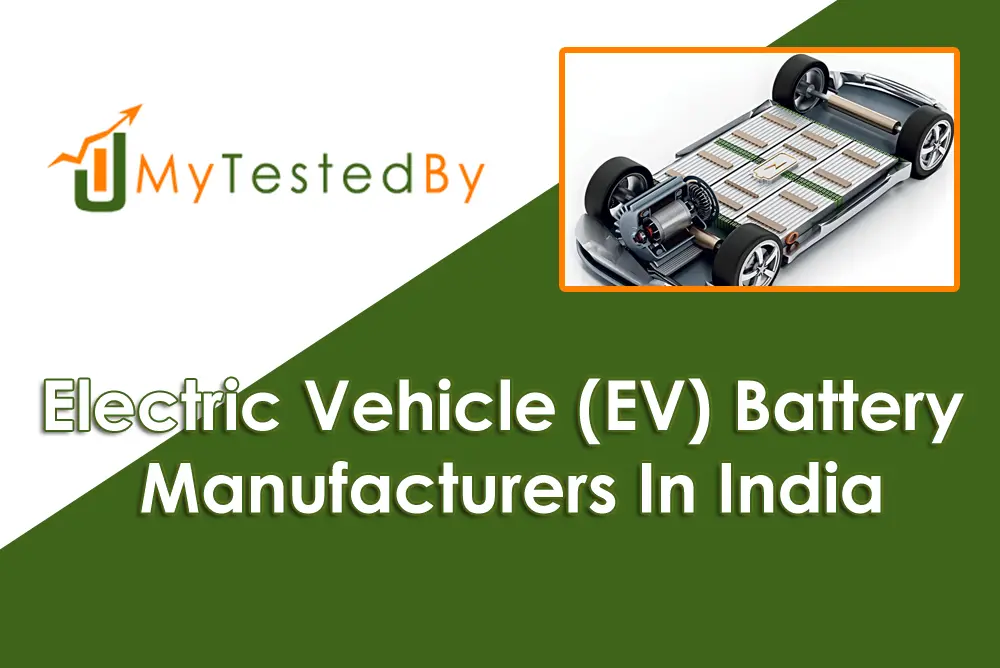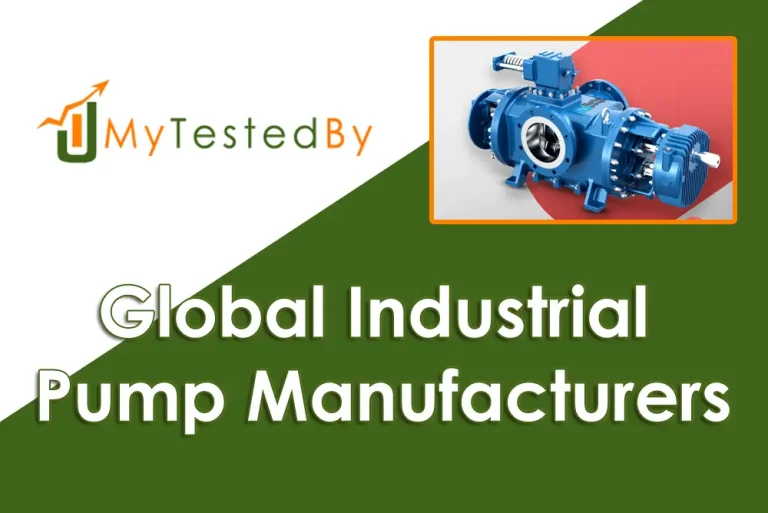Electric Vehicle (EV) Battery Manufacturers In India
The Importance of EV Batteries in India
EV batteries are the heart of electric vehicles, determining their range, performance, and overall efficiency. The adoption of EVs in India is crucial for several reasons:
- Reducing greenhouse gas emissions and air pollution
- Decreasing the country’s dependence on imported fossil fuels
- Boosting the renewable energy sector
- Creating new employment opportunities
The Indian government has introduced several initiatives to promote the adoption of EVs, such as the Faster Adoption and Manufacturing of Electric Vehicles (FAME) scheme and tax incentives for EV buyers. As a result, the demand for EV batteries has grown significantly, presenting a massive opportunity for manufacturers to innovate and expand their production capacities.
Top Electric Vehicle (EV) Battery Manufacturers in India

-
Exide Industries Limited
Exide Industries Limited is one of India’s leading battery manufacturers, with a strong presence in the automotive and industrial sectors. The company has recently ventured into the EV battery space, leveraging its expertise and state-of-the-art manufacturing facilities to produce high-quality lithium-ion batteries.
Address: Exide House, 59E Chowringhee Road, Kolkata – 700 020, West Bengal, India
Website: www.exideindustries.com
Products:
- Lithium-ion batteries for electric two-wheelers and three-wheelers
- Lithium-ion batteries for electric cars and commercial vehicles
- Battery management systems (BMS)
-
Amara Raja Batteries Limited
Amara Raja Batteries Limited is a renowned name in the Indian battery industry, known for its high-quality lead-acid batteries for automotive and industrial applications. The company has recently forayed into the EV battery segment, developing advanced lithium-ion batteries for electric vehicles.
Address: Renigunta – Cuddapah Road, Karakambadi, Tirupati – 517 520, Andhra Pradesh, India
Website: www.amararajabatteries.com
Products:
- Lithium-ion batteries for electric two-wheelers and three-wheelers
- Lithium-ion batteries for electric cars and commercial vehicles
- Battery management systems (BMS)
-
Tata Chemicals Limited
Tata Chemicals Limited, a part of the Tata Group, is a leading manufacturer of chemicals and materials in India. The company has identified the EV battery sector as a key growth area and has invested in the development of lithium-ion batteries for electric vehicles.
Address: Bombay House, 24 Homi Mody Street, Fort, Mumbai – 400 001, Maharashtra, India
Website: www.tatachemicals.com
Products:
- Lithium-ion battery cells and packs for electric vehicles
- Battery materials, such as lithium iron phosphate (LFP) and lithium nickel manganese cobalt oxide (NMC)
- Battery recycling solutions
-
Greenfuel Energy Solutions Private Limited
Greenfuel Energy Solutions Private Limited is a leading provider of energy storage solutions in India, with a focus on lithium-ion batteries for electric vehicles. The company has collaborated with global technology partners to develop state-of-the-art EV batteries that are efficient, reliable, and affordable.
Address: Plot No. 17, Sector 10, PCNTDA, Bhosari, Pune – 411 026, Maharashtra, India
Website: www.greenfuelenergy.com
Products:
- Lithium-ion batteries for electric two-wheelers and three-wheelers
- Lithium-ion batteries for electric cars and commercial vehicles
- Battery management systems (BMS)
-
Okaya Power Private Limited
Okaya Power Private Limited is a leading manufacturer of batteries and power solutions in India, with a strong presence in the automotive and industrial sectors. The company has recently entered the EV battery space, developing advanced lithium-ion batteries for electric vehicles.
Address: D-7, Udyog Nagar, Rohtak Road, New Delhi – 110 041, India
Website: www.okayapower.com
Products:
- Lithium-ion batteries for electric two-wheelers and three-wheelers
- Lithium-ion batteries for electric cars and commercial vehicles
- Battery charging infrastructure
-
Mahindra Electric Mobility Limited
Mahindra Electric Mobility Limited, a subsidiary of the Mahindra Group, is a pioneer in the Indian electric vehicle industry. The company manufactures electric cars, three-wheelers, and battery packs, playing a crucial role in promoting sustainable transportation in the country.
Address: Plot No. 66 to 69 & 72 to 76, Bommasandra Industrial Area, 4th Phase, Jigani Link Road, Bangalore – 560 099, Karnataka, India
Website: www.mahindraelectric.com
Products:
- Lithium-ion battery packs for electric cars and three-wheelers
- Battery management systems (BMS)
- Electric vehicle chargers
-
Lohum Cleantech Private Limited
Lohum Cleantech Private Limited is a rapidly growing company in the EV battery space, focusing on the development of lithium-ion batteries and battery recycling solutions. The company’s innovative approach to battery design and manufacturing has earned it recognition in the industry.
Address: Plot No. 89, Sector 5, IMT Manesar, Gurugram – 122 052, Haryana, India
Website: www.lohum.com
Products:
- Lithium-ion batteries for electric two-wheelers and three-wheelers
- Lithium-ion batteries for electric cars and commercial vehicles
- Battery recycling and second-life solutions
-
Denso India Private Limited
Denso India Private Limited, a subsidiary of the global automotive components manufacturer Denso Corporation, has recently ventured into the EV battery segment. The company leverages its expertise in automotive technology to develop high-quality lithium-ion batteries for electric vehicles.
Address: Plot No. 12, Sector 8, IMT Manesar, Gurugram – 122 050, Haryana, India
Website: www.denso.com/in/en
Products:
- Lithium-ion batteries for electric cars and commercial vehicles
- Battery management systems (BMS)
- Thermal management solutions for EV batteries
-
Lucas TVS Limited
Lucas TVS Limited, a joint venture between Lucas Industries Limited and TVS Group, is a leading manufacturer of automotive electrical components in India. The company has recently entered the EV battery space, developing advanced lithium-ion batteries for electric vehicles.
Address: 8, Mount Road, Guindy, Chennai – 600 032, Tamil Nadu, India
Website: www.lucastvs.com
Products:
- Lithium-ion batteries for electric two-wheelers and three-wheelers
- Lithium-ion batteries for electric cars and commercial vehicles
- Battery management systems (BMS)
-
Log9 Materials Scientific Private Limited
Log9 Materials Scientific Private Limited is a pioneering startup in the EV battery space, known for its cutting-edge research and development in the field of graphene-based batteries. The company’s innovative battery technology promises to revolutionize the electric vehicle industry in India and beyond.
Address: #38, Harohalli, Jigani Industrial Area, Anekal Taluk, Bangalore – 560 106, Karnataka, India
Website: www.log9materials.com
Products:
- Graphene-based lithium-ion batteries for electric vehicles
- Rapid charging battery packs for electric two-wheelers and three-wheelers
- Battery management systems (BMS)
The Future of EV Battery Manufacturing in India
The electric vehicle (EV) battery manufacturing industry in India is poised for exponential growth in the coming years, driven by several factors:
- Government support: The Indian government’s initiatives, such as the FAME scheme and the National Electric Mobility Mission Plan (NEMMP), are expected to create a conducive environment for the growth of the EV battery industry.
- Increasing demand: As the adoption of electric vehicles increases in India, the demand for high-quality EV batteries is expected to rise significantly.
- Technological advancements: The development of new battery chemistries, such as solid-state batteries and graphene-based batteries, is expected to improve the performance, safety, and affordability of EV batteries in the future.
- Localization of supply chain: The Indian government’s push for the localization of EV components, including batteries, is expected to boost domestic manufacturing and reduce dependence on imports.
Challenges and Opportunities
Despite the promising growth prospects, the EV battery manufacturing industry in India faces several challenges:
- Raw material availability: The limited domestic availability of key raw materials, such as lithium and cobalt, can hinder the growth of the EV battery industry in India.
- Lack of infrastructure: The absence of a well-developed charging infrastructure and the limited availability of battery recycling facilities can pose challenges for the widespread adoption of EVs in the country.
- High initial costs: The high upfront costs of EV batteries can make electric vehicles less affordable for consumers, hindering their adoption.
However, these challenges also present opportunities for innovation and collaboration. EV battery manufacturers in India can explore alternative battery chemistries, such as LFP and sodium-ion batteries, which are less dependent on scarce raw materials. Investments in charging infrastructure development and battery recycling facilities can help create a more sustainable and circular EV ecosystem.
Conclusion
The electric vehicle (EV) battery manufacturing industry in India is at the forefront of the country’s transition towards sustainable transportation. The top EV battery manufacturers in India, such as Exide Industries Limited, Amara Raja Batteries Limited, Tata Chemicals Limited, and Greenfuel Energy Solutions Private Limited, are leading the charge with their innovative products and commitment to excellence.
As the demand for electric vehicles grows in India, driven by government support and increasing environmental awareness, the EV battery manufacturing industry is expected to witness significant investments, technological advancements, and job creation opportunities. By addressing the challenges related to raw material availability, infrastructure development, and initial costs, India can emerge as a global hub for EV battery manufacturing and a leader in the global transition towards clean mobility.
The future of electric mobility in India is bright, and the EV battery manufacturers in the country are well-positioned to capitalize on the immense growth potential. With the right policies, investments, and collaborations, India can not only meet its domestic demand for EV batteries but also become a significant exporter of these critical components, contributing to the global fight against climate change and fostering a more sustainable future for generations to come.
Top FAQs about Electric Vehicle (EV) Battery Manufacturers in India
1. Who are the major EV battery manufacturers in India?
The Indian EV battery manufacturing landscape is evolving rapidly. Some prominent players include:
- Domestic:
- Exide Industries
- Amara Raja Batteries
- Tata Chemicals SIDBI
- Chennai Petroleum Corporation Limited (CPCL)
- International:
- LG Chem (South Korea)
- Panasonic (Japan)
- Bosch (Germany)
- Samsung SDI (South Korea) (considering setting up facilities)
2. What types of EV batteries are manufactured in India?
Currently, Lithium-ion (Li-ion) batteries dominate EV battery production in India. These come in various chemistries like Lithium Nickel Manganese Cobalt Oxide (NMC) and Lithium Iron Phosphate (LFP).
3. Is India self-sufficient in EV battery production?
No, India currently relies on imports for a significant portion of its EV battery needs. The government is actively pushing for increased domestic manufacturing capacity.
4. What are the government initiatives to boost EV battery manufacturing in India?
The government has introduced policies like:
- Production Linked Incentive (PLI) scheme to attract investments and promote local cell production.
- Setting up of mega battery storage facilities.
- Relaxing import duties on critical raw materials.
5. What are the advantages of having a strong domestic EV battery manufacturing base?
- Reduced dependence on imports and improved supply chain security.
- Lower battery costs for EVs, making them more affordable.
- Creation of jobs and boost to the manufacturing sector.
6. What are the challenges faced by EV battery manufacturers in India?
- High dependence on imported raw materials like Lithium and Cobalt.
- Limited research and development capabilities compared to established players.
- Meeting stringent quality and safety standards for EV batteries.
7. How is battery recycling being addressed in India?
Battery recycling is an emerging area. The government is setting up regulations and encouraging companies to establish battery recycling facilities.
8. What are the future prospects for EV battery manufacturing in India?
The future looks promising, with government support, increasing demand for EVs, and potential technological advancements.
9. Can I find a list of all EV battery manufacturers in India?
There isn’t a single definitive list. Industry reports and news articles often cover major players. Government websites and industry associations might also provide information.
10. Are there any Indian startups involved in EV battery technology?
Yes, there’s a growing number of Indian startups focusing on EV battery innovation, materials research, and next-generation battery technologies.
11. How will the performance and range of EVs improve with advancements in battery technology?
Advancements in battery technology hold the potential to significantly improve the range, charging speed, and overall performance of EVs.
12. What are some of the safety considerations for EV batteries?
Thermal runaway (battery overheating) is a potential safety concern. Manufacturers implement strict quality control measures and battery management systems to mitigate risks.
13. How are EV batteries disposed of at the end of their lifespan?
Proper disposal is crucial. Recycling facilities are being established to recover valuable materials from spent batteries.
14. What is the environmental impact of EV battery production?
Battery production can have an environmental footprint. Sustainable sourcing of raw materials and responsible recycling practices are key for minimizing environmental impact.
15. How does the cost of EV batteries compare to traditional internal combustion engine vehicles?
EV battery costs are still higher than internal combustion engine vehicles, but the gap is narrowing with advancements in technology and manufacturing.
16. Will there be different battery technologies used for various types of EVs (two-wheelers, three-wheelers, four-wheelers)?
Yes, different battery types might be preferred for various EV segments depending on factors like range requirements and cost considerations.
17. Can I buy EV batteries directly from manufacturers?
No, typically EV batteries are not sold directly to consumers. They are supplied to EV manufacturers who integrate them into their vehicles.
18. How long does a typical EV battery warranty last?
EV battery warranties vary depending on the manufacturer, but typically range from 3 to 8 years or a specific mileage limit.
19. What factors affect the lifespan of an EV battery?
Battery lifespan depends on various factors like charging habits, depth of discharge, and operating temperatures.
20. How can I extend the life of my EV battery?
Following manufacturer recommendations for charging and avoiding extreme temperatures can help optimize battery lifespan.

![Air Compressor Manufacturer in India [Top 11 Manufacturers]](https://mytestedby.com/wp-content/uploads/2024/02/Air-Compressor-Manufacturer-in-India.webp)
![Silk Saree Manufacturers in India [Best Manufacturers]](https://mytestedby.com/wp-content/uploads/2024/02/Silk-Saree-Manufacturers-in-India-768x449.webp)

![Best Cricket Bat Manufacturers in India [Top 6 Manufacturers]](https://mytestedby.com/wp-content/uploads/2024/04/Cricket-Bat-Manufacturers-in-India-768x513.webp)

